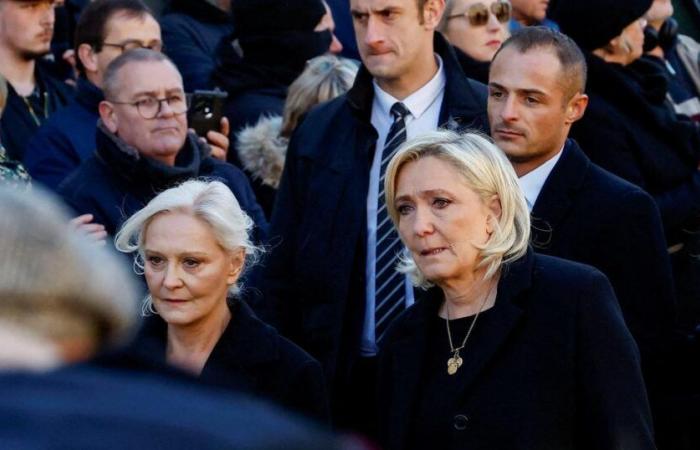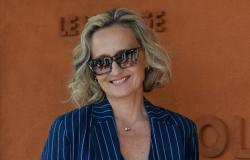Par Emma Perrin
Published
January 13 at 11:39 a.m.,
updated January 13 at 11:57 a.m.
”
data-script=”https://static.lefigaro.fr/widget-video/short-ttl/video/index.js”
>
In a first interview since the death of the founder of the FN, his daughter returned to “one of the most difficult decisions of her life”.
Excluding one’s predecessor is not trivial politically, but even less so when it comes to one’s own father. Sunday January 12, in a first interview since the death of Jean-Marie Le Pen five days earlier, Marine Le Pen, the president of the RN group in the National Assembly, spoke about the decision she took in 2015 to exclude his father from the National Front. “Making this decision was one of the most difficult of my life and for the rest of my life I will always ask myself: ‘Could I have done it differently?’”
“It’s a little unfair to judge him solely on the basis of these controversies”reacts the former presidential candidate about the founder of the party described by his opponents as “devil of the Republic” for decades, notably for his decried statements on the Shoah. “Over 80 years (of political life), unless you are a sort of Sarkozy or socialist ectoplasm, it is inevitable to have subjects which give rise to controversies”sweeps away Marine Le Pen, who judges despite everything “unfortunate” that his father “got stuck in these provocations”. “The problem was that he was starting again”she admits.
”
data-script=”https://static.lefigaro.fr/widget-video/short-ttl/video/index.js”
>
Demonization
In 2015, the one who had taken the lead of the Frontist party four years earlier had decided to exclude the patriarch, until then honorary president, after a new outburst about “German occupation”which would not have been “particularly inhumane”. Jean-Marie Le Pen, convicted several times by the courts, notably for contesting crimes against humanity, had also promised a “batch” to singer Patrick Bruel.
At the same time, Marine Le Pen wanted to accelerate her race for a “demonization” of the National Front which she precisely intended to detach from its sulfurous past, maintained for decades by the polemics of her father, like the “detail of the history of the Second World War” – name he chose in 1987 to describe the gas chambers. A demonization which continued in 2018 with a change of name, from «Front» au “Gathering”. For Marine Le Pen, the political legacy of her father, who reached the second round of the presidential election in 2002, is definitely a delicate question.
”
data-script=”https://static.lefigaro.fr/widget-video/short-ttl/video/index.js”
>






